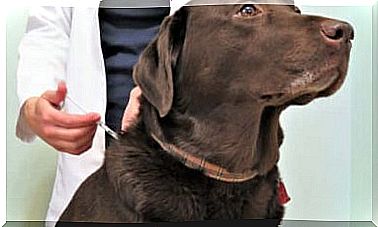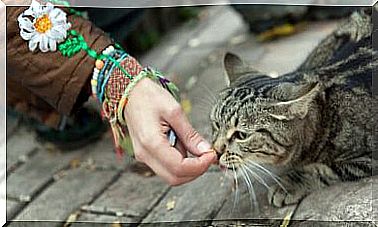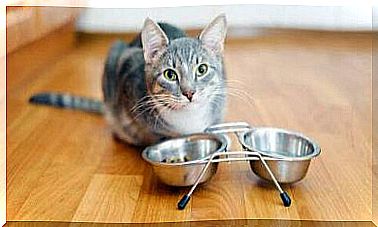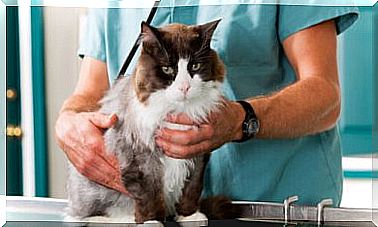Anemia In Cats: How To Recognize And Treat It
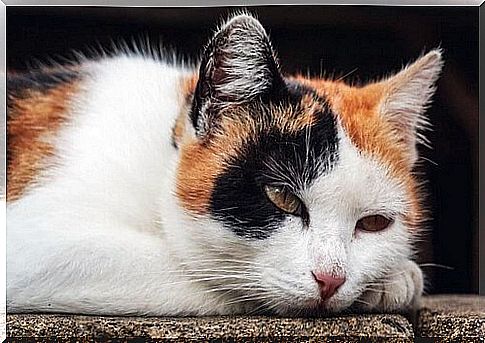
Certainly you have already heard of anemia. Both humans and animals can suffer from it. Anemia in cats results from a drop in the number of erythrocytes, or red blood cells, in the blood. These are the cells in charge of transporting oxygen to the tissues.
In anemia, the amount of hemoglobin, a pigment of erythrocytes capable of capturing oxygen and carbon dioxide molecules, is also reduced.
The causes of anemia in cats are varied and each requires specific treatment. We at My Animals show you how to detect and treat anemia in cats. However, remember that the vet should always confirm the diagnosis and decide on the best treatment.
How to recognize anemia in cats?
In general, the clinical symptoms of anemia are fatigue, depression, decreased appetite and pale mucous membranes. Weight loss can also occur, and some cats exhibit respiratory symptoms that may be associated with other conditions. As we will see below, the cause will determine the course of the condition.
Blood tests represent the clinical examination that will confirm the presence of anemia to the veterinarian. To be exact, the blood count. In it appears the amount of cells (red blood cells, white blood cells and platelets) present in the blood and their proportion, as well as the amount of hemoglobin.
If the erythrocyte values are below the threshold limit established for cats, we will be faced with a case of anemia. The blood count, however, will only confirm the state of the anemia, but not its cause.
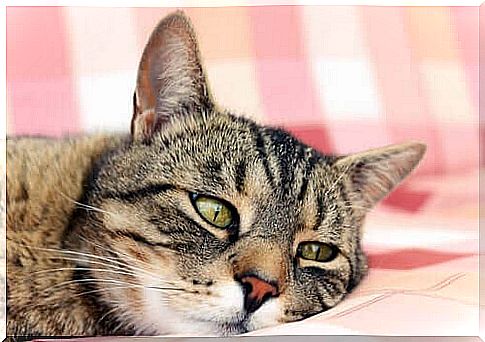
Causes of anemia in cats
Depending on the cause or response given by the body, there are different methods of classifying the types of anemia in cats. For example, whether or not the bone marrow produces new erythrocytes, we classify anemia as:
- Regenerative anemia : the animal loses more red blood cells than the bone marrow is capable of generating.
- Non-regenerative anemia : The bone marrow has stopped producing red blood cells and no new ones will form. This type of anemia is more severe and has a worse prognosis. It is usually associated with kidney, endocrine and immune diseases. Bacteria of the genus Ehrlichia or Hemobartonella can also cause anemia.
There are additional classifications, but this is the most common.
Treatment of anemia in cats
Treatment will depend on the underlying cause that will be diagnosed by your vet. However, if we are in the presence of a severe case of anemia, it is possible that our cat needs a blood transfusion to stabilize his condition.
The transfusion will offer an immediate supply of red blood cells. Like humans, the donor’s blood must be compatible with that of the patient.
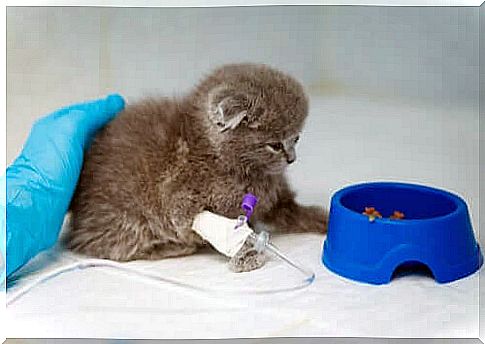
If the anemia is caused by a lack of nutrients, it will be sufficient to improve the feeding of the animal. The vet will recommend the most suitable for each case.
Can anemia be prevented?
If our animals are developing a disease that impairs red blood cell production and we do not notice symptoms, it is difficult to prevent anemia. For this reason, periodic visits to the vet are important. On the other hand, we can control certain factors that keep the animal in good health:
- Guarantee a healthy, balanced and complete diet. Supermarket pet foods are unsuitable. The ideal is to buy them in a specialized store. Consult the composition of the food to find out if it is suitable for your pets.
- Give your cat parasite treatment inside and out. Every month to prevent external parasites and every three months for internal parasites. It is very important that the pesticides are specific for cats. Those for dogs, in fact, contain highly toxic substances for felines.
- Vaccinate cats against infectious diseases. Feline leukemia and feline immunodeficiency can be associated with anemia in cats; vaccines exist for both diseases. If our cats are not vaccinated, we must avoid exposing them to other cats.
Now you know that anemia can hide other serious diseases. See your vet if you suspect a case of symptom-related anemia; it is very important to detect the exact cause.
Once the vet has confirmed the diagnosis, he will establish a treatment. As the owner, you can prevent anemia by ensuring your cats have proper nutrition, the right protection from parasites and the necessary vaccines.


